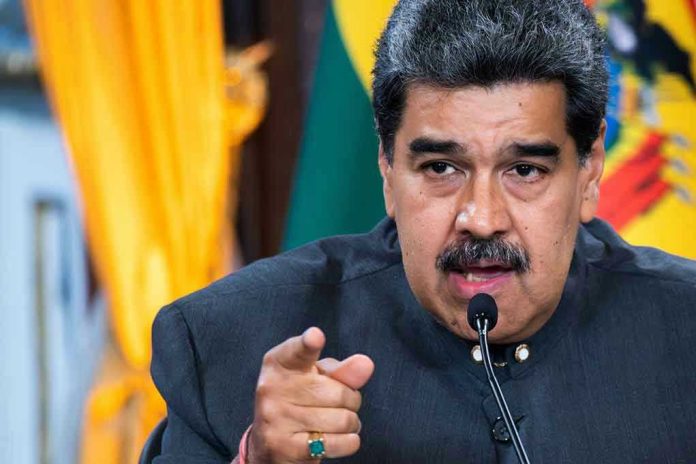
Venezuela has ordered nearly 200,000 soldiers into “massive deployment” as tensions with the United States reach a dangerous new threshold.
Story Snapshot
- Venezuela mobilizes massive military force of 200,000 troops in direct response to U.S. naval presence
- America’s largest aircraft carrier now operates in Latin American waters, escalating regional tensions
- Military posturing signals potential flashpoint between socialist regime and U.S. interests
- Regional stability hangs in balance as both nations flex military muscle
Socialist Regime Flexes Military Muscle
Venezuela’s announcement represents one of the largest military mobilizations in South American history. The Maduro regime framed this deployment as a defensive response to what it perceives as American aggression in regional waters. This massive show of force demonstrates Venezuela’s willingness to escalate tensions rather than pursue diplomatic solutions to mounting bilateral conflicts.
The timing of this mobilization cannot be ignored. Venezuela’s economy continues crumbling under socialist policies, creating internal pressure that authoritarian regimes often deflect through external conflicts. Military posturing serves dual purposes for Maduro: projecting strength against foreign threats while distracting citizens from domestic failures.
American Naval Power Projects Strength
The United States deployed its largest aircraft carrier to Latin American waters as part of routine naval operations, but Venezuela interprets this presence as direct provocation. American naval power projection in the region serves legitimate strategic interests, including protecting shipping lanes, supporting democratic allies, and deterring hostile actions from authoritarian regimes.
Venezuela’s disproportionate military response reveals the regime’s fundamental insecurity. A confident, stable government would address American naval presence through diplomatic channels rather than mobilizing nearly 200,000 troops. This overreaction exposes Venezuela’s leadership as reactive rather than strategic in their decision-making processes.
Regional Implications Demand Attention
This military escalation threatens stability across Latin America. Venezuela’s neighbors must now calculate how this massive troop deployment affects their own security arrangements. Colombia, Brazil, and other democratic nations in the region face increased pressure to choose sides as tensions between Venezuela and the United States intensify dramatically.
The broader implications extend beyond immediate military concerns. Venezuela’s actions could destabilize regional trade relationships, migration patterns, and security cooperation agreements. Latin American nations invested in democratic governance and free market economics find themselves caught between competing powers with fundamentally different worldviews and strategic objectives.

